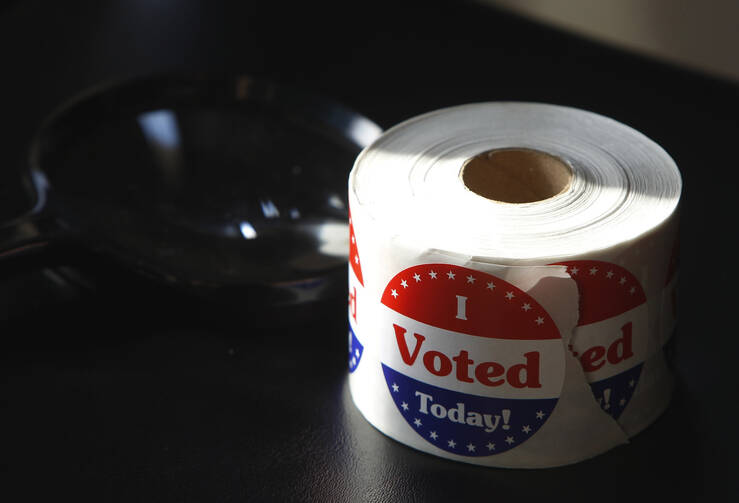The daylight hours of Election Day bring story after story, tweet after tweet, about voter turnout. This is insanely boring, and the stories have little predictive value about the election results: Long lines in certain places prompt speculation about unexpectedly high turnout, and only later do we learn about declines in voter participation elsewhere. This year, we’re getting plenty of voter turnout stories weeks before the election, partly because everyone is sick of talking about the candidates but mostly because depressing the vote has become an important campaign strategy.
For example, the New York Times reports that a voter registration group in Georgia is suspicious of the secretary of state’s office there because almost half of the 86,000 people it has registered haven’t yet shown up on voter rolls. Though the New Georgia Project is officially nonpartisan, it has been working to sign up younger, nonwhite, and women voters, which would benefit Democrats like U.S. Senate candidate Michelle Nunn. As the Times’s Nate Cohn tweets, “If Nunn gets to within 20k votes of 50 [percent] but misses, these missing RVs are going to loom extremely large.”
A sludgy bureaucracy is one way to discourage participation, but voter ID laws are the innovation of the moment. The Supreme Court recently OK’d the implementation of a Texas law requiring, like a ride at Disney World, certain tickets for entry to a voting booth. The American Prospect’s Liz Kennedy writes, “the new law only allows seven forms of acceptable identification, including a gun permit or a military ID but not a student ID from a state institution. The federal district court found that African American registered voters are 305 percent, and Hispanic registered voters 195 percent, less likely to have one of these seven forms of ID.”
Citizens without driver’s licenses are the biggest targets (OK, the biggest affected population) of voter ID laws, especially when they need to travel great distances to acquire another acceptable form of identification. But making it difficult to vote is precisely the point. Historian Nicole Hemmer writes in U.S. News that “squeamishness about mass voting is part of a broader conservative discomfort with mass democracy.” She points to a 2012 National Review essay by Kevin D. Williamson in which he laments, “The sacramentalization of the act of voting represents the worst of the democratic impulse and contributes to the ongoing conversion of our republican institutions into so many tribunes of the plebs” and conludes, “If we end up with fewer voters, we may yet end up with better elections.”
The Atlantic’s Peter Beinart writes on the creeping acceptance of the idea that voters with “economic independence” are more disinterested and legitimate than voters who use government services. For example, “I’ve had some radical ideas about voting and it’s probably not a good time to tell them, but you used to have to be a property owner to vote,” said Florida congressman Ted Yoho just before his election in 2012.
Vox’s Matthew Yglesias thinks there’s one way to counter such talk, and that’s through the Constitution: “The best way to vindicate this right [to vote] would be through something like the language of a proposed constitutional amendment introduced last year by Reps. Mark Pocan and Keith Ellison, which states that ‘every citizen of the United States, who is of legal voting age, shall have the fundamental right to vote in any public election held in the jurisdiction in which the citizen resides.’”
It’s a worthy idea, but this kind of (as Williamson put it) “sacramentalization” of voting will not be an easy sell. I could see it becoming an amendment in the early 1970s (as when the voting age was lowered to 18 in 1971). Back then, political reform was seen as a way to diffuse the anger and energy that led to street protests and riots during the Vietnam War and civil rights movement. Now, Occupy Wall Street notwithstanding, there’s little incentive to give anything to the hippies. I suspect that the war against a constitutional right to vote, which would surely involve xenophobia as well as a general revulsion toward the great unwashed, would make the campaign against the Equal Rights Amendment look tame.








